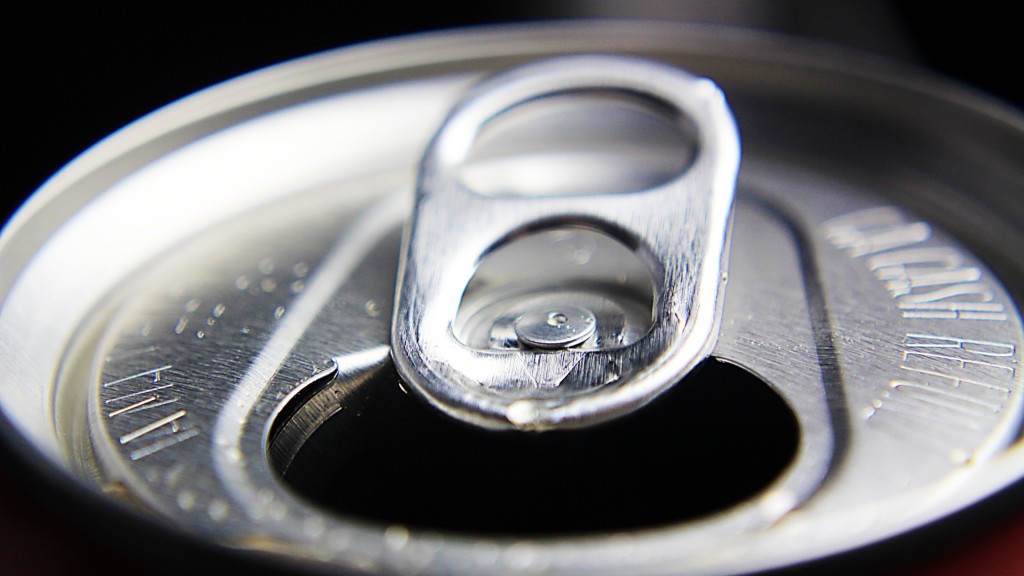Aluminum can manufacturers and can sheet producers endorse net-zero emissions strategy

Can Manufacturers Institute (CMI) and all its aluminum beverage can manufacturer and can sheet producer members have endorsed Mission Possible Partnership's (MPP) transition strategy for a net-zero, 1.5 degrees Celcius-aligned aluminum industry. These endorsements reflect the aluminum beverage can industry's aim to reduce the carbon footprint of the relatively small amount of primary aluminum in beverage cans, thereby contributing toward the needed progress in the fight against climate change.
Since the 1990s, the carbon footprint of aluminum beverage cans made in North America has dropped by nearly half. Endorsing and acting on the MPP strategy will result in even further reductions in the carbon footprint of the aluminum beverage can since the primary aluminum incorporated into aluminum beverage cans would have a reduced carbon profile.
Transitioning the aluminum industry to net-zero greenhouse gas emissions by 2050 while complying with a target of limiting global warming to 1.5 degrees Celcius from preindustrial levels will require a variety of actions including deploying new technologies, decarbonizing power supplies, and increasing material and product efficiency. The MPP aluminum transition strategy provides an actionable, achievable plan. Through their endorsements, CMI aluminum beverage can sector members are agreeing on the importance of limiting global warming to 1.5 degrees Celcius and recognizing that actions to support the transition to achieve a 1.5 degrees Celcius-aligned scenario should be pursued expeditiously.
One of the other ways to reduce the carbon footprint of aluminum beverage cans is to increase the recycled content used in new cans. Aluminum beverage cans manufactured in the United States average 73 percent recycled content. That number will increase, decreasing the need for primary aluminum, if the industry is successful in reaching the stated aluminum beverage can recycling rate targets. These targets, as set by CMI and its members, entail going from a 45 percent recycling rate in 2020 to a 70 percent rate in 2030, an 80 percent rate in 2040, and a 90 percent rate in 2050. CMI's Aluminum Beverage Can Recycling Primer and Roadmap details how these targets can be achieved. Recycling more aluminum beverage cans means a greater environmental and economic impact, as well as more cans exemplifying the circular economy as they go from the recycling bin back to the store shelf as a new can in as little as 60 days.
"Our strategy has two parallel paths to further reduce the carbon footprint of the aluminum beverage can – lower the carbon footprint of any primary aluminum incorporated into beverage cans and increase the recovery of used beverage cans so the recycled content in new cans increases," says Scott Breen, CMI's vice president of sustainability. "Our members have shown leadership in both of these areas by endorsing Mission Possible Partnership's strategy to foster a net-zero, 1.5 degrees Celcius-aligned aluminum industry and by committing to ambitious U.S. aluminum beverage can recycling rate targets."
These endorsements follow a gathering of more than 100 leaders across the aluminum beverage can value chain at the Global Aluminium Can Sustainability Summit. CMI and the International Aluminium Institute co-organized the event. One of the two focus areas of the summit was aluminum decarbonization. A representative from MPP unveiled the aluminum sector transition strategy for the first time as part of the gathering.
Enacting the sector transition strategy will take time and large investments. MPP believes cumulative investment of approximately $1 trillion across the primary production value chain will be needed to deliver a net-zero sector or a 1.5 degrees Celcius pathway. CMI, its aluminum beverage can manufacturer members (Ardagh Metal Packaging, CANPACK, Crown Holdings, and Envases), its aluminum beverage can sheet producer members (Constellium, Kaiser Aluminum, Novelis, and Tri-Arrows Aluminum), as well as its partner and fellow endorser The Aluminum Association, will be working with a variety of stakeholders inside and outside of the industry to catalyze the necessary actions and investments to pursue this transition strategy.
Company info
1730 Rhode Island Avenue, NW Suite 1000
Washington, DC
US, 20036
Website:
cancentral.com
Phone number:
202/232-4677



